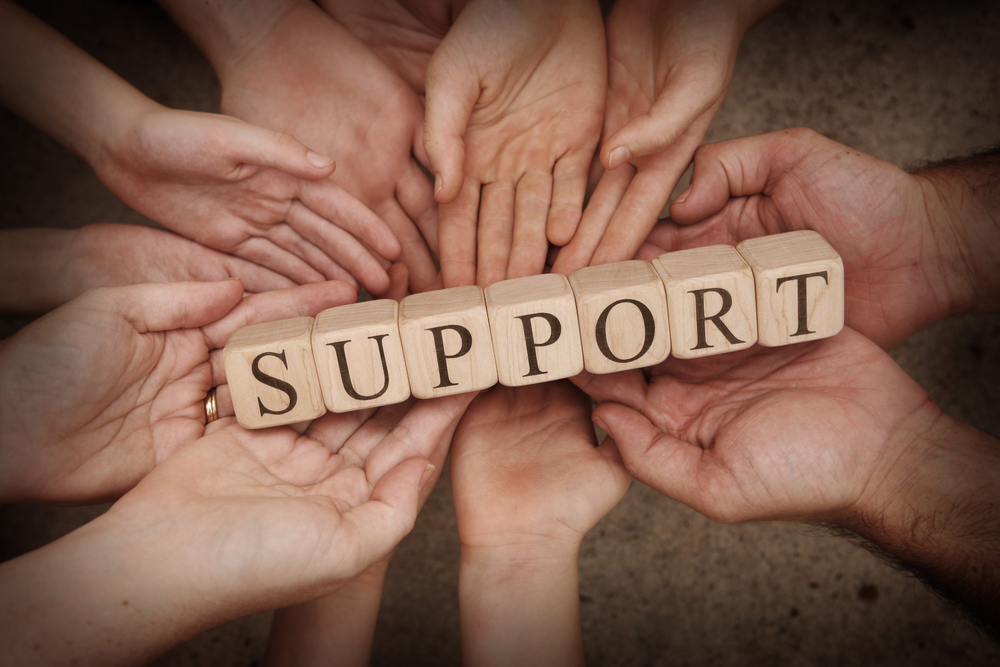Recognizing Danger Signs for Mental Health
Guest Post by By Christine H. for According 2 Mandy
According to the National Alliance on Mental Illness, 1 in 5 Americans experience mental illness in any given year. About 1 in 25 live with a very serious mental illness. That means that most of us have a friend or loved one who is fighting a daily battle. These mental illnesses can range from depression to schizophrenia (much more common than you think it is,) and from PTSD to addiction.
Looking from the outside in, it’s always hard to determine what we should do to help. Is it better if we just don’t mention things? Do we risk offending them if we bring it up? At what point do we need to step in and help, whether they want it or not? How can we let them know that we’re there for them without being overbearing?
Every person is different. How you can be most helpful might change according to what it is that they’re struggling with, or what your relationship is. In the end, it’s going to come down to their specific needs. It’s possible that there will be some mistakes, awkwardness, and missteps before you are able to help as effectively as you’d like. However, that’s simply the side effect of caring, and it’s always better to try to help, clumsily, than to do nothing at all.
At the very least, there is a baseline that you should be able to recognize, so you can know when your friend is actually in danger due to mental health concerns. Here are some of the big red flags that you should NEVER ignore.
Addiction
Individuals with mental illness are at twice the risk of addiction. There are several reasons for this. Firstly, substance abuse can contribute to symptoms of mental illness, exacerbate disorders, and even lead to the onset of mental illness. Secondly, mental illness and addiction carry many of the same baseline risk factors, including environmental factors, trauma, and family history. But most of all, addiction and mental illness are found together because people have a tendency to self-medicate. In order to cope with symptoms of mental illness, they’ll use mood-altering substances, and this pattern can quickly lead to dependence, especially if the underlying mental illness is never diagnosed and treated.
If your loved one is showing signs of substance dependence, it’s important for you to let them know that you’re noticing it. They might not want to hear it, but they’ll be grateful when they have a clear view on how substance abuse is affecting their life. Refrain from passing moral judgement; remember that a major characteristic of addiction is that it changes our motivation patterns.
Signs of addiction will change from person to person, and from one substance to another. But as a general rule, if they’re sacrificing other goals in order to obtain and use a certain substance, or if substance use is hurting their health, it’s a major warning light. This link has great tips for broaching the subject with your friend. It’s essential that they seek out professional help for addiction. Recovery is a difficult process, especially when there’s a co-occurring mental health disorder.
Suicide
Suicide is the 2nd leading cause of death in individuals between 10 and 25 years old. About 90% of people who die from suicide suffer from a major mental health disorder. Thoughts of suicide and behavior related to it (like erratic moods, or even self-harm) can be part of the process of dealing with a mental health disorder. Because of this, it’s very difficult for friends and family to recognize the serious red flags that indicate an immediate suicide risk.
If an individual is taking action to get the materials they’d need for suicide, if they’re doing things that indicate that they’re putting their affairs in order or saying goodbye, or if they’re making comments about suicide (even comments that they shrug off as facetious) then it’s time to hit pause and ask them seriously what’s going on.
Compromising Goals and Relationships
The vast majority of mental illnesses are chronic. There’s not a cure, and each individual will have to deal with it for their whole life. However, well-managed mental disorders won’t keep you from living your life the way you want to. If your friend’s mental health symptoms are holding them back in their career, sabotaging important relationships, or keeping them from reaching personal goals, these are all signs that it’s not under control. True, sometimes it’s a process. It might take some time, and some trial and error, to find a management approach that works. However, they should never think that it’s to be expected that their life is constantly derailed by mental illness. Help them and encourage them to reach a healthy balance.


 Follow
Follow





No Comment